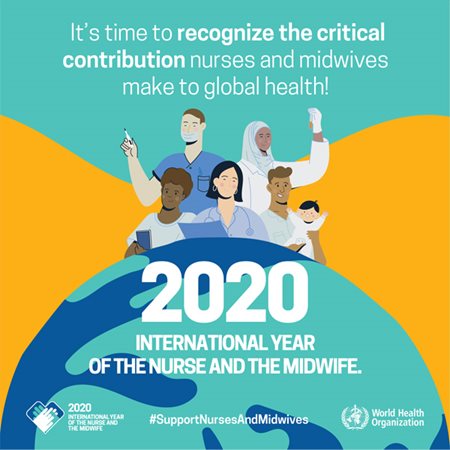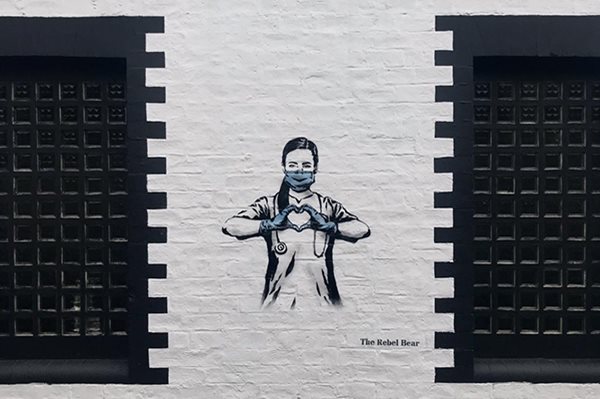.jpg.aspx?width=650&height=433)
When we think of pharmacology as a discipline, it’s easy to imagine research careers in a university or industry setting. At public engagement events, it’s not uncommon for pharmacology to be confused with pharmacy, or even farming, depending on the audience. In reality, pharmacology is part of many professions, from basic science to the clinic, dentistry, pharmacy and veterinary practice. The importance of pharmacology in healthcare, and in particular nursing practice, cannot be overlooked given the vital role nurses play in administering medication for patient care. 2020 marks both the
International Year of the Nurse and the Midwife and the 200
th anniversary of Florence Nightingale’s birth. In April,
World Health Day was dedicated to nurses and midwives and in May we will celebrate
International Nurses Day, making it timely to shine a spotlight on this underrepresented group in the Society who apply the principles of pharmacology in their day-to-day roles.

Nurses and midwives make up the largest proportion of frontline healthcare professionals, representing nearly half of the 43.5 million health workers worldwide. However, it is estimated that
50% more will be needed by 2030 to meet the growing demand for global healthcare. Although public awareness of the selfless dedication of our nursing professionals has increased during the novel COVID-19 global pandemic, it shouldn’t take a pandemic for us to realise the value of our nurses and midwives. The work they’re doing now is the work they do every day of the week, 365 days of the year, come rain, hail, shine or global catastrophe.
 Street art by The Rebel Bear, Photography by Killian Kleeman
Street art by The Rebel Bear, Photography by Killian Kleeman
Nursing around the world
If you haven’t already done so, we recommend reading the recent International Council of Nurses report
Nurses: A Voice to Lead – Nursing the World to Health. This report eloquently expresses the professional perspectives of the global nursing community, sharing innovative practice, highlighting health inequalities, acknowledging the perennial challenges the profession faces, and offering forward-looking strategies to transform healthcare systems.
Case studies present the dimensions of public nursing of the UK, Lebanon, Japan, Canada, USA, Barbados, Australia, Taiwan, Russia, Chile and Africa. Each case study offers insight into the breadth of frontline roles nurses take in different countries: from supporting veterans in the USA, to developing a framework to assist survivors of human trafficking in Canada, and improving access to and uptake of immunisation in Lebanon.
Recurrent natural disasters in countries such as Japan has even led to the establishment of a disaster-relief network of almost 10,000 nurses, who ensure care is delivered rapidly post-disaster to affected communities. The contribution nurses make as frontline responders for the provision of vital healthcare is priceless, and demand in primary healthcare will only increase as population health challenges grow. Support for nurses and midwifes has never been more necessary.
Practical support for nurse-led projects
UK nursing charities, including the
Royal College of Nursing (RCN) Foundation, the
Florence Nightingale Foundation and
The Burdett Trust for Nursing, provide opportunities for leadership development and funding for innovative nurse-led projects aimed at enhancing patient care.
Funded projects through the RCN foundation has led to initiatives to improve the support available to patients, particularly for those who face health inequalities. A new
COVID-19 Support Fund has recently been announced by the RCN Foundation to support the nursing community during this challenging period. Other successful nurse-led projects include a national clinical network of homeless hospital discharge nurses, made possible by funding awarded by the Burdett Trust to
Pathways, the UK’s leading homeless healthcare charity.
COVID-19 presents a significant risk to the homeless, therefore the provision of nursing care to this community is a critical lifeline. It is essential that nurses and midwifes receive every support to protect themselves and continue to deliver care to the most vulnerable in our society.
Show your support
As this is the
International Year of the Nurse and the Midwife, let’s continue to raise awareness and champion the valuable contributions our nursing professionals make. Not just one day or one year, but every day in every year.
The
Pharmacology Matters team have a series of articles and blogs planned to celebrate awareness days and weeks throughout the year. If you have ideas for future topics that align with a particular celebration, please get in touch at
editorialPM@bps.ac.uk.
More from Editorial
Comments
If you are a British Pharmacological Society member, please
sign in to post comments.